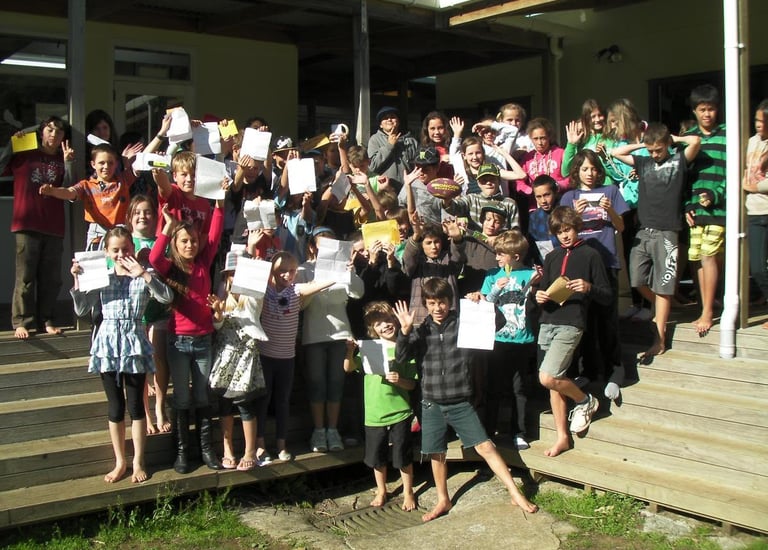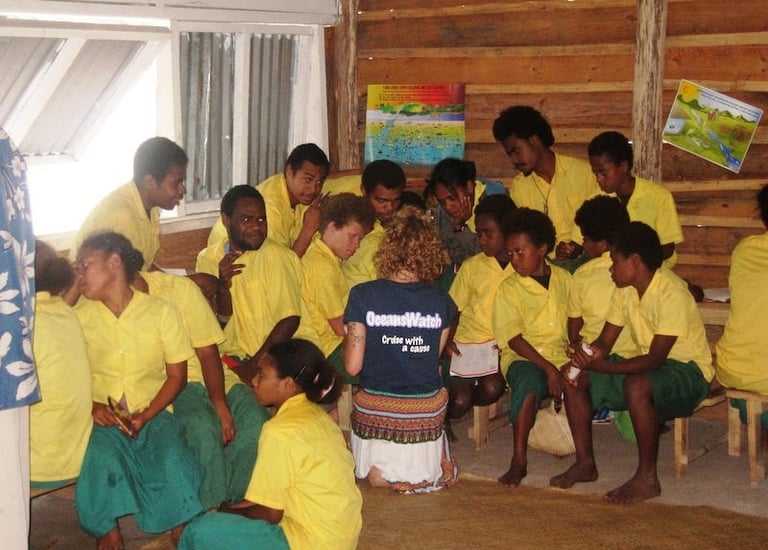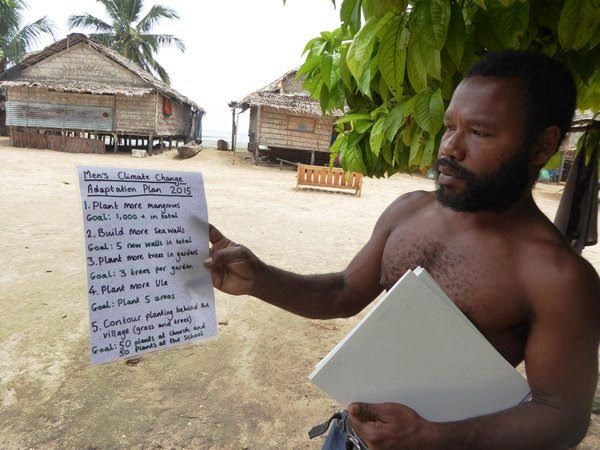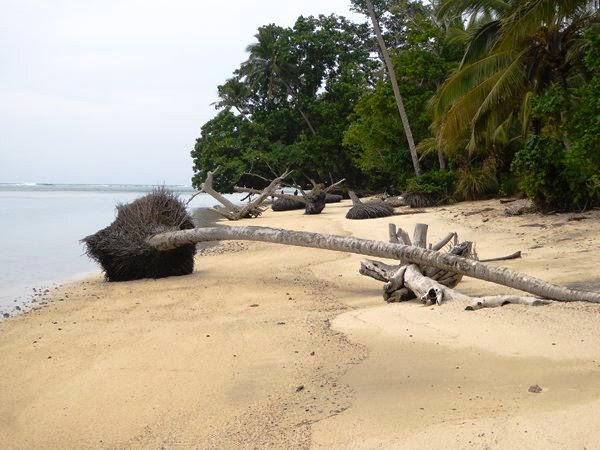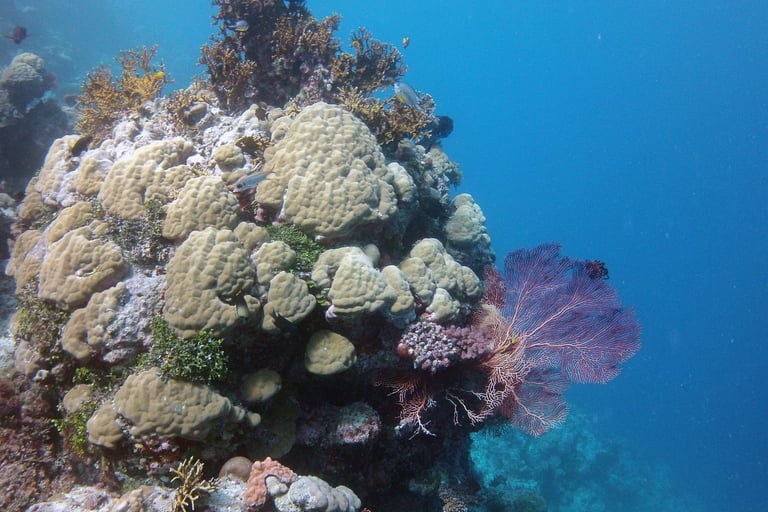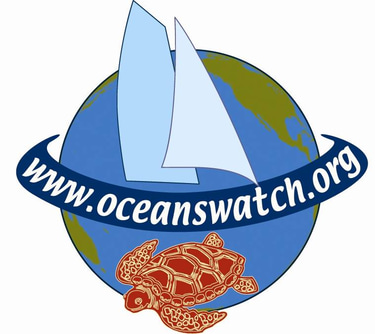Our Work
Supporting Pacific island communities through marine conservation and much more
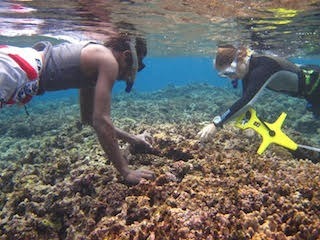

Marine Protection
Marine Protected Areas (MPAs) Established and Managed:
◦ In the Reef Islands (Solomon Islands), OceansWatch made huge progress toward implementing a marine management program covering 30,000 ha. This project involved working with five villages to implement a plan to manage this large reef area.
◦ In 2011, there were first indications of increased fish numbers within the Marine Protected Areas established by OceansWatch.
◦ By 2009, OceansWatch had successfully chartered and marked a system of three Marine Reserves on Karkar Island, Papua New Guinea (PNG).
◦ OceansWatch assisted the Tehakatu’u village on Rennell Island (Solomon Islands) in establishing a 40-hectare MPA.
◦ In 2015, the team facilitated the registration of two Community Conservation Areas in Vatop and Pwetelvut (Vanuatu) with the Vanuatu Government.
• Reef Monitoring and Training:
◦ OceansWatch completed 250 Reef Check evaluations in 2009 with the help of six OceansWatch member vessels.
◦ In their initial year (2008), the team carried out and submitted data for five Reef Check assessments in Vanuatu and nine in Papua New Guinea.
◦ In Tuwo village, six Reef Guardians were trained in 2010 to monitor and protect the MPA.
◦ In 2012, 37 Reef Guardians in various villages received training in the "Free Choice Profiling" methodology.
◦ In 2013, the team provided intensive training to ten Reef Guardians in Buma (Vanikoro).
◦ In 2014, Reef Guardian training was provided in five villages.
• Crown-of-Thorns Starfish (COTS) Removal:
◦ In 2011, the team removed over 700 COTS in 2 hours from the Unakap reef in North Efate, Vanuatu. This was part of an effort to combat a major epidemic where the local community had already removed 20,000 COTS that year but the population remained high.
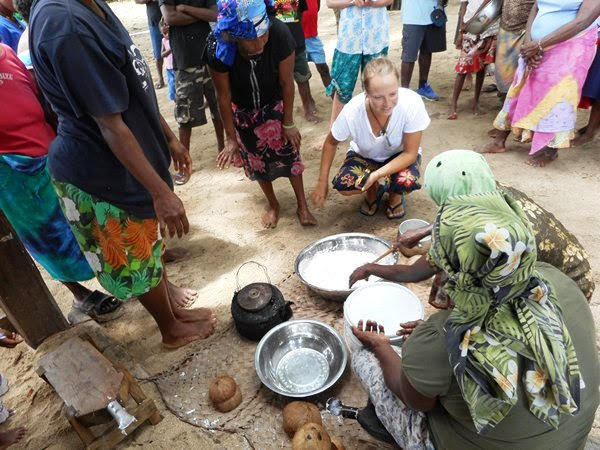



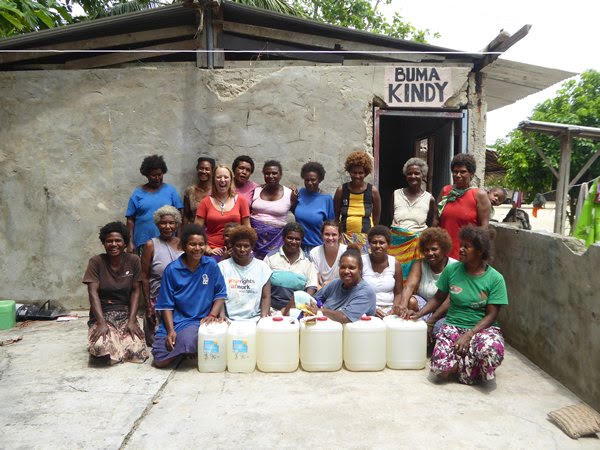

Sustainable Livelihoods
Alternative Livelihoods (Virgin Coconut Oil - VCO):
◦ In Buma (Vanikoro), families own over 3,000 coconut trees, which OceansWatch helped leverage for a sustainable VCO livelihood program.
◦ It costs around $5,000 to equip and train a village to be able to produce virgin coconut oil.
◦ In 2017, the VCO program provided training to 17 women on Gaua, Vanuatu, giving them a new sustainable skill and income opportunity.
◦ A pilot project to sell traditional crafts on Rennell Island generated sales at double the usual price the craftspeople would have received locally.
Education and Aid
In the first year of the school partnership (by 2009), Kamo High School (NZ) raised NZ$850 to support 51 underprivileged students at Mater on Karkar Island (PNG).
◦ By the end of 2008, OceansWatch had distributed hundreds of pairs of reading glasses to those in need.
◦ In 2012, OceansWatch distributed 14 crates of essential medical supplies to villages and the Island clinic.
◦ The community in Tuwo was equipped with Solar Panels in 2013 to provide a charging point for mobile phones and a charging service for banana boats' safety program using a VHF radio.
Terrestrial Conservation and Climate Change Adaptation
Endangered Species Identification:
◦ In 2013, Dr. Ray Pierce identified and photographed the first Vanikoro Flying Fox seen since 1931. This species is listed as critically endangered.
◦ In 2014, Dr. Pierce and his team successfully located all three Endangered birds and two Endangered flying-fox species targeted for survey in the Temotu Province. One of the flying fox species had not been recorded for about 100 years.
• Climate Change Adaptation Planning:
◦ In Buma (2014), both men's and women's groups designated five concrete actions they committed to taking to adapt to climate change.
◦ In 2015, OceansWatch delivered climate change awareness workshops to 20 communities in North Efate, Vanuatu.
• Anti-Logging/Mining Efforts:
◦ OceansWatch is working to protect the forests on Nende Island (Solomon Islands), which cover >40,000ha.
◦ The rainforest targeted for protection sequesters approximately ~400,000 tons CO2 per year.
◦ The Temotu team successfully turned away miners in 2017; mining representatives who landed were put straight back on the plane to Honiara.
